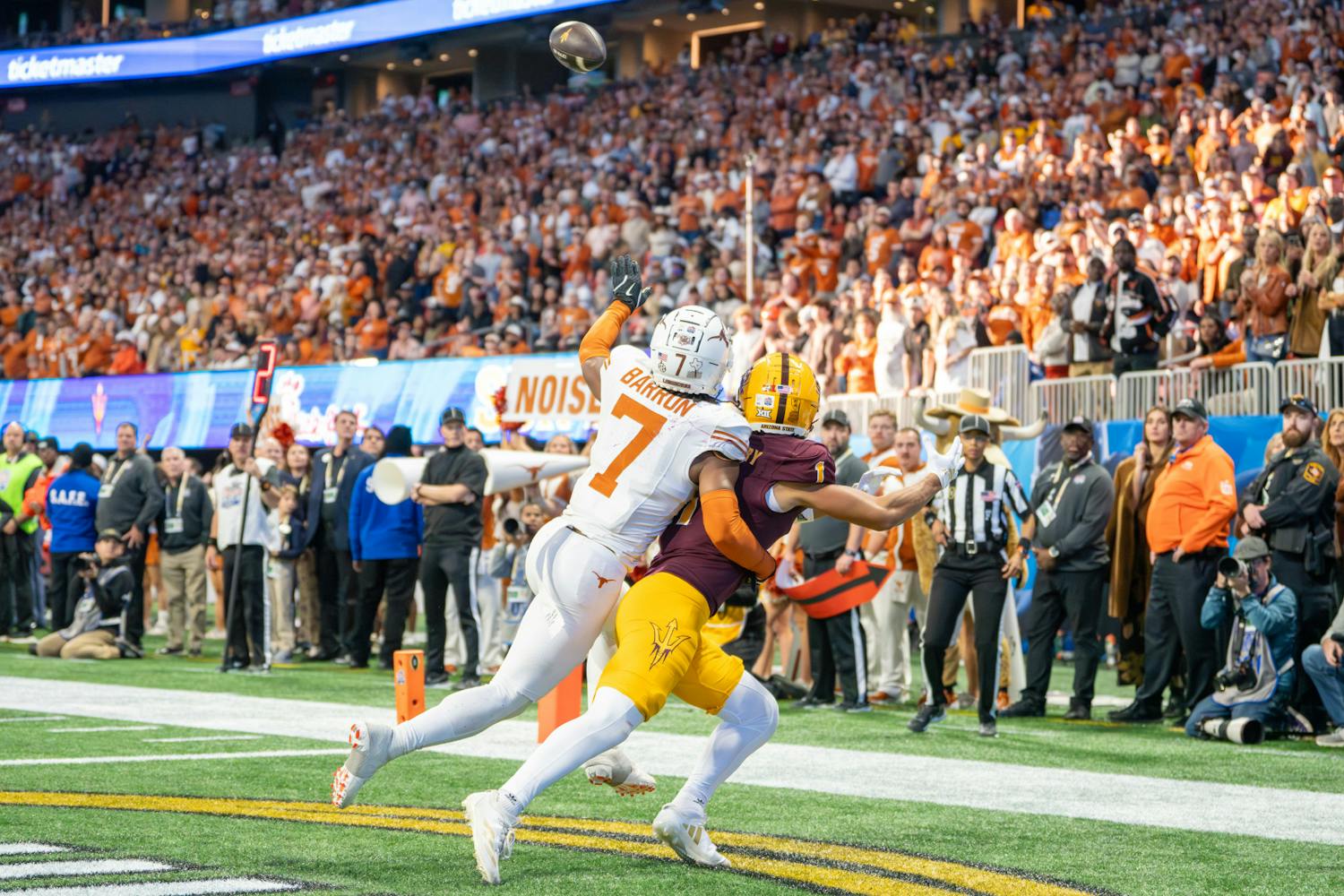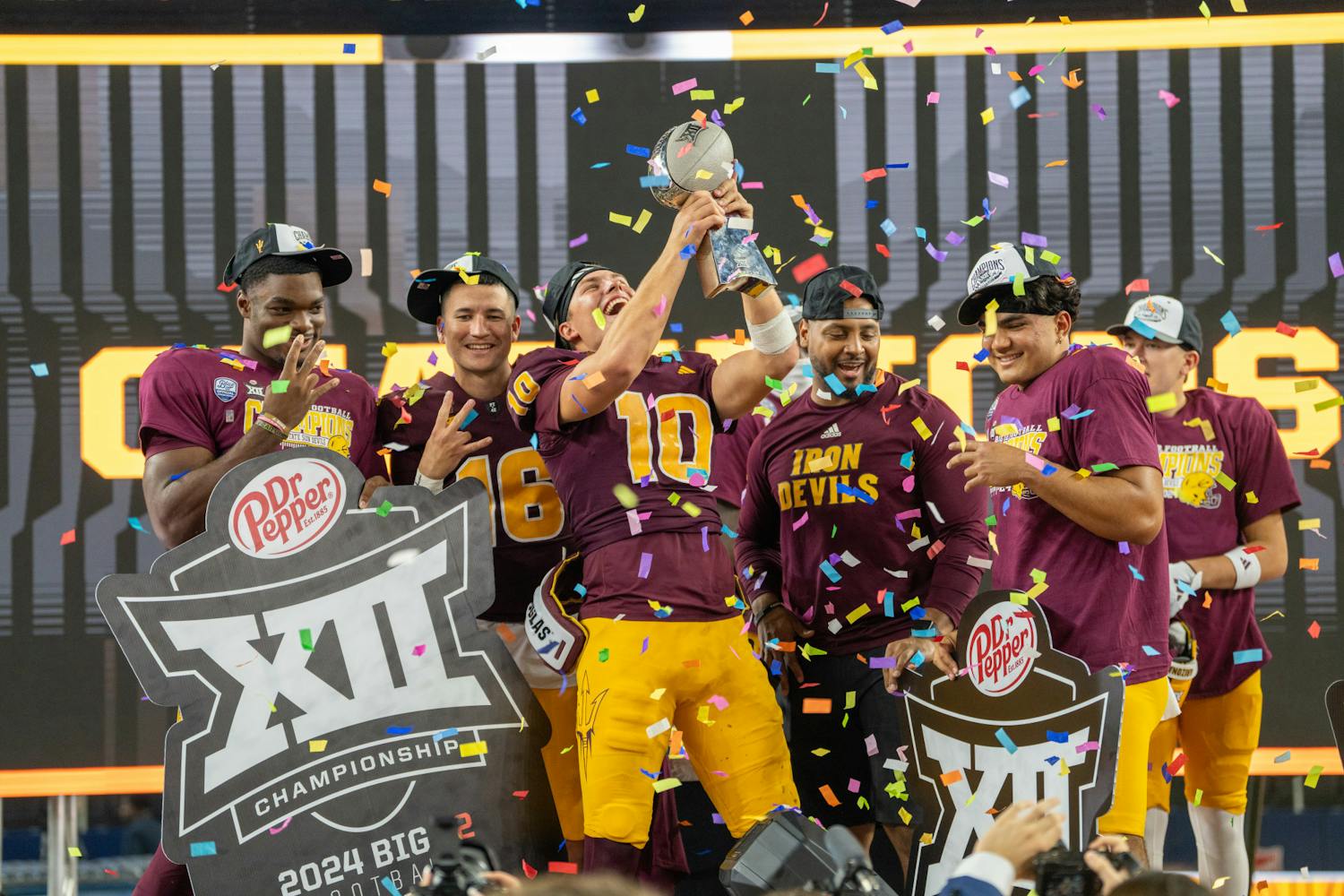We sit down with Michael Simeone, the Director of Data Science and Analytics for the ASU Library, and discuss the opportunities available to students interested in working with data. Michael Simeone is in charge of Data Science Week, an event put on by the Library to encourage student interaction and engagement with information and technological resources.
The Data Science Lab offers opportunities and connections to inform students, faculty and library affiliates on what data science can offer. These meetings of the mind also have the goal of demonstrating how people can discover different areas of study and collaboration on a multitude of topics.
The ASU Library has an open door policy and seeks to create a community of inclusion when it comes to sharing and exploring information resources. If data science sounds interesting, or if you are interested in working with others on collaborative discovery, stop by the ASU Hayden Library and ask how to get connected.
Griffin Sandidge: Hello and welcome. My name is Griffin Sandidge with the science and tech podcast desk, and today with me is Michael Simeone, director of data science and analytics for the ASU library. He's here today to talk to us a little bit about what they're doing and what they hope to achieve. So thank you for joining us, Michael. The data science lab is in the bottom of the library what is it working on currently?
Michael Simeone: So we've got a number of different projects that range from collaboration with faculty that look like partnerships between myself or David, our data scientist, and faculty at ASU. That's one bucket of the kinds of activities that we do in another bucket of activities is student driven projects, where we bring students in and mentor them while they work with their peers on solving certain kinds of problems. We have a really interesting role, right? We are trying to make sure that we're not seen as like a help desk but that we're already or a hub of activity that's already going on.
I like to think about it sometimes like a bike shop or bicycle coop, right? If you go in, there's already people who are up to something, and there are already people who are or building something or creating something, and they're just in the middle of it. And that's actually the best way to learn. And so if you come in, yeah, you'll get oriented. But rather than kind of come in and be like "Oh, here's 101, and here's what to do instead," it's "Well, here's these folks, and they're working on something already" or "Here's a faculty member who's interested in maybe something you're working on." Everything is already in progress and that's the best way to learn. We've got one group of students that's working on classifying crater types that are kind of observed on different photographs of the moon. This is for the School of Earth and Space Exploration.
Griffin Sandidge: What is the ASU Iibrary working on with this? Like, what are they hoping to achieve with this project of just opening their doors?
Michael Simeone: So I think the library in general has had a pretty open door policy about those kind of resources. I think the interesting thing about libraries anymore is you have incredible resources and not a lot of people who know about those resources. The amount of expertise and knowledge in our own library just, you know, 40 feet away is remarkable. But how to actually get people oriented to those resources and to those experts can sometimes be really tough. So this is an attempt to rather than kind of say "Here's our expertise — come see us for expertise," we're just going out and making stuff happen and asking people to join us. And so I think the idea behind the unit for data science is to not only invite people in but to go out and engage people as actively as possible and then bring them back to the library.
Libraries are historically pretty great resources for information and data. And even all the little small decisions you can make about data are so meaningful when it comes to other kinds of data science stuff down the road. So we think it's an appropriate place for (a) data science research lab. We also don't want to just wait for people to come in and see us. So the doors are always open, but we're always out there in ASU working with people trying to bring new people in.
Our number one way of connecting students is to get them in the same time in the same place at least once. Open lab is a kind of nice social mechanism where we can get this to happen. We brief the students about what we're all about and how students fit in. Students are really important to what we do. Again, for us, project-based learning is the most important thing. So we want to get students involved in projects as quickly as possible, but we also want to learn about what they do and what they're interested in. We collaborate with faculty directly sometimes, but sometimes there's a nice match to be had there if we have a group of students who are all interested in a certain kind of machine learning. And we have a faculty member who's got a problem that they want to sponsor, and that problem fits really well with an interest then we can pretty quickly set up a productive match between the student groups and faculty.
We hope that we get different kinds of people coming into the lab, but then we hope that we get them all oriented towards one another. So we want the people who are great with data to be oriented with the students who are passionate about programming. We typically have open lab Wednesdays 1 to 3 where anyone who's interested in data science can come in and kind of talk about data science with other people who are curious about it. We ask that everybody who comes in brings something either something that was inspiring to them or something that that question about or something that they're very interested in, and sometimes that means that a discussion. Sometimes it means we have like a quick you know 30 minute primer on a particular idea. There's different kinds of ways that people can get engaged in different kinds of time commitments that people can make. We try to adjust for that.
Griffin Sandidge: Once again this has been Griffin Sandidge with science and tech podcast desk. With me today was director of data science and analytics for the library, Michael Simeone, and I will see you guys in the next one.
Follow your host Griffin Sandidge on Twitter and Instagram
Like and Follow State Press on Twitter and Facebook




